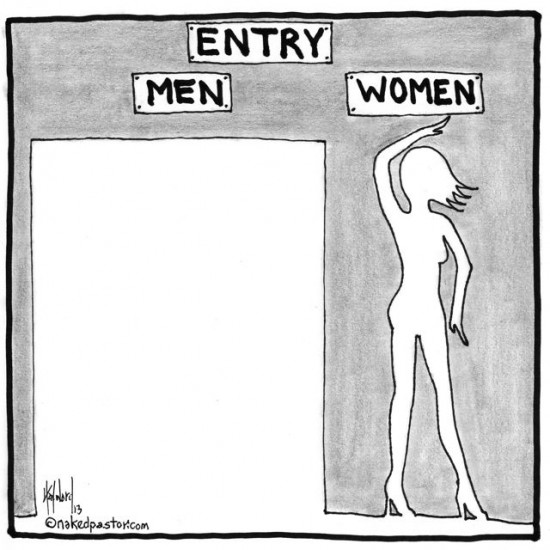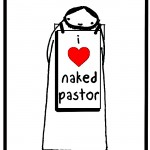
Eric Metaxas has written a new book, Seven Men and the Secret of Their Greatness. I can’t talk about the book since I haven’t read it. But he has been interviewed about it by Kathryn Jean Lopez of the National Review in her article, “Raising Good Men”. I love her opening question: “Why a book about men? Does this prove that there is a Christian disdain for women?” She also asked why he wanted to return to “Father Knows Best”. I think it betrays her suspicion of Metaxas’ theory. I’m suspicious too. I thought I’d run it by you. What do you think?
First, let me give what I think is a fair summary of his thought. Metaxas believes there is a crisis of manhood in our culture and that we are “afraid to talk about what it means to be a man.” We can’t admit, because it has become politically incorrect, that men and women are different. He claims that “in the last 40 years we lost our idea of what a man is.” Every parent knows that young men need to know what it means to be a man. They need heroes for this. Male heroes. We have denigrated the idea of heroes to the point that the only ones available today are in video games. Men should take a bullet for women. Women should be able to dive behind the protection of men. That’s how God made us. God made men to shield women. This is how men are supposed to express their love. Men instinctively want to protect others even if it means dying to do so. Women typically don’t do this because they express their love in different ways. Metaxas insists that we need to be talking about God’s idea of what a man is and celebrating that rather than lazily floating down the cultural river away from true manhood. If men don’t learn how to be real men it will be women who suffer the most.
My first response to this interview is confusion. It leaves me with more questions than answers. I’m all into questions, as you may know. But when someone claims to make claims I think there needs to be some clarity to the claims.
Here are just some of my concerns:
Are all heroes only men? He does claim that women don’t express their love by protecting others, at least in the same way men do. It is more than implied that women are not supposed to protect others at the expense of their own lives. God made men to do that. I’m going to be lazy here and not gather names, but how many females have given their lives for others? We couldn’t even begin to count. Could we?
What is Metaxas’ definition of a hero? He wanted to give the seven men as examples of people “worthy of emulation… who faced monumental difficulties with courage and grace.” I would agree that this is a good definition of a hero, but I certainly don’t confine it to men. Does he? Countless women fit this description. He talks about men who have made sacrifices for political reasons; men who have kept their religious convictions in the face of incredible pressure to forsake them; men who have fought long and hard with integrity to liberate others; and men who have forsaken sexual intimacy in order to serve a higher purpose. I hope he would agree that there are countless women who have done the same. But they are not mentioned because, for some reason, he feels it is important for men to see this as a description of a heroic man.
How do I communicate this idea to my children? I’ve raised three… two boys and a girl, now adults. Never once in my whole career as a parent and father did I consider the need to differentiate between male and female when talking about the inspiring lives of others. We’ve always taught our children that there are many ways to be, many ways to love, many ways to protect, many ways to be courageous, many ways to be a hero. I want all three of our kids to be courageous. But I want my sons to be gentle if need be and I would want my daughter to be fierce if need be. And they are.
I’ve also never said to my sons, “Real men don’t do that” or to my daughter, “Real women don’t do that.” Never. And I never intend to. Would Metaxas, as the interviewer detected, like to return to a much earlier time when men were men and women were women, when it was clear what men’s roles were and what women’s roles were, when men had their place and women had theirs? He replies, “Yes, I want to turn the clock all the way back to when dinosaurs roamed the earth, about 6,000 years ago. Is that so wrong?”
He must have been joking. Because, yes, it would be wrong. It would be wrong for me as a man, and it would be wrong for my wife and for my daughter as women. They wouldn’t want to go back. Neither would my sons. Neither do I. Do you? Even though policy is slow to change, I believe we are making some significant advances in gender awareness. I am suspicious that Metaxas’ ideas about gender roles won’t help.











